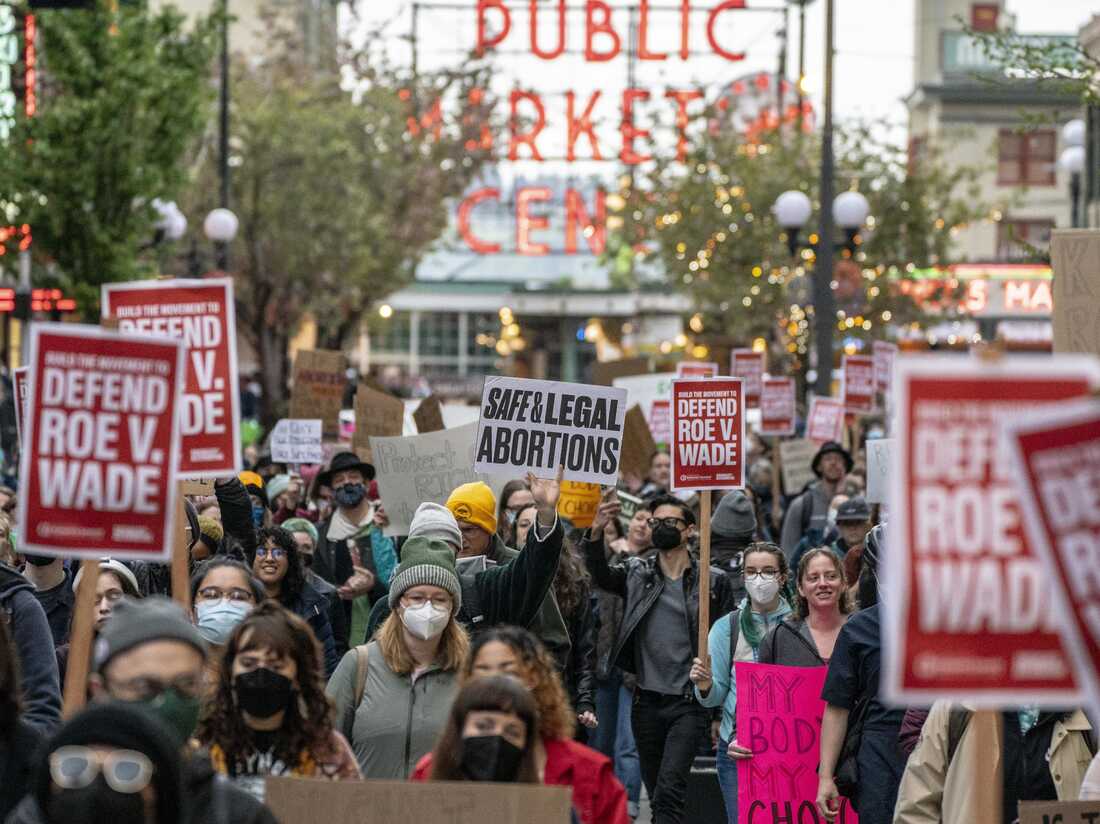
Demonstrators march following a rally in support of abortion rights near Pike Place Market on May 3, 2022 in Seattle, Washington. David Ryder/Getty Images hide caption

Demonstrators march following a rally in support of abortion rights near Pike Place Market on May 3, 2022 in Seattle, Washington.
David Ryder/Getty ImagesDebates about the status of Roe v. Wade continue after the Supreme Court's draft opinion was leaked last week. This week, the Senate is planning to vote on legislation that would codify abortion rights into a federal law, but it's likely to fail given the 50-50 split between Democrats and Republicans. That means abortion access will be left up to states — and some already have restrictive abortion laws.
Reproductive justice advocates are concerned about the disproportionate impact those laws will have on Black and Brown communities if Roe is overturned.
NPR's Sandhya Dirks spoke to some advocates about how women of color are situated in this abortion access debate. And NPR's Selena Simmons-Duffin explains how restricting abortion access means restricting health care for people across all demographic backgrounds.
You can also hear more from Dr. Diana Green Foster, who spoke to NPR's science podcast Shortwave, which examined what happened when people had access to abortion and what happened when they were denied.
Email us at
This episode was produced by Brianna Scott, Gabe O'Connor, and Taylor Hutchison. It was edited by Ashley Brown, Gisele Grayson, Marcia Davis, and Jane Greenhalgh. Our executive producer is Cara Tallo.

 Live Radio
Live Radio